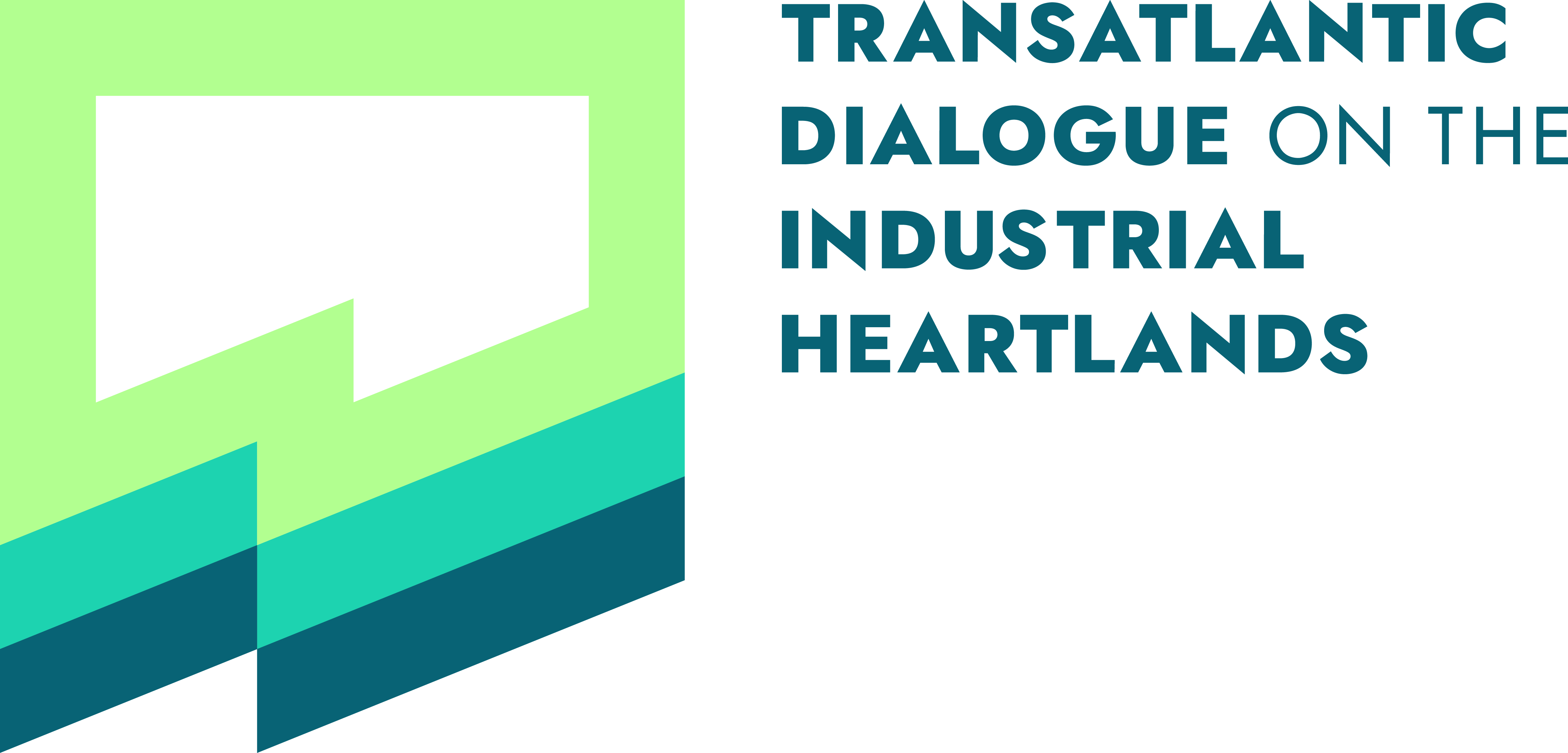Author: Sandra Rath
As part of Das Progressive Zentrum’s “Transatlantic Dialogue on the Industrial Heartlands” Project, a group of local decision makers from the US Midwest travelled through Belgium and Germany last November to strengthen transatlantic ties and exchange ideas on a common challenge: Fostering economic revival through climate neutral industries and fortifying liberal democracy in industrial heartland regions. During their visit to Brussels, Charleroi, Saarbrücken, Leipzig and Berlin, our delegation met with experts, civil society leaders and politicians on local and federal levels to learn how they approach issues ranging from trust in democracy and political institutions, transforming production towards climate neutrality, the role of science and innovation as well as financial instruments to fund local initiatives.
Meet the Delegation
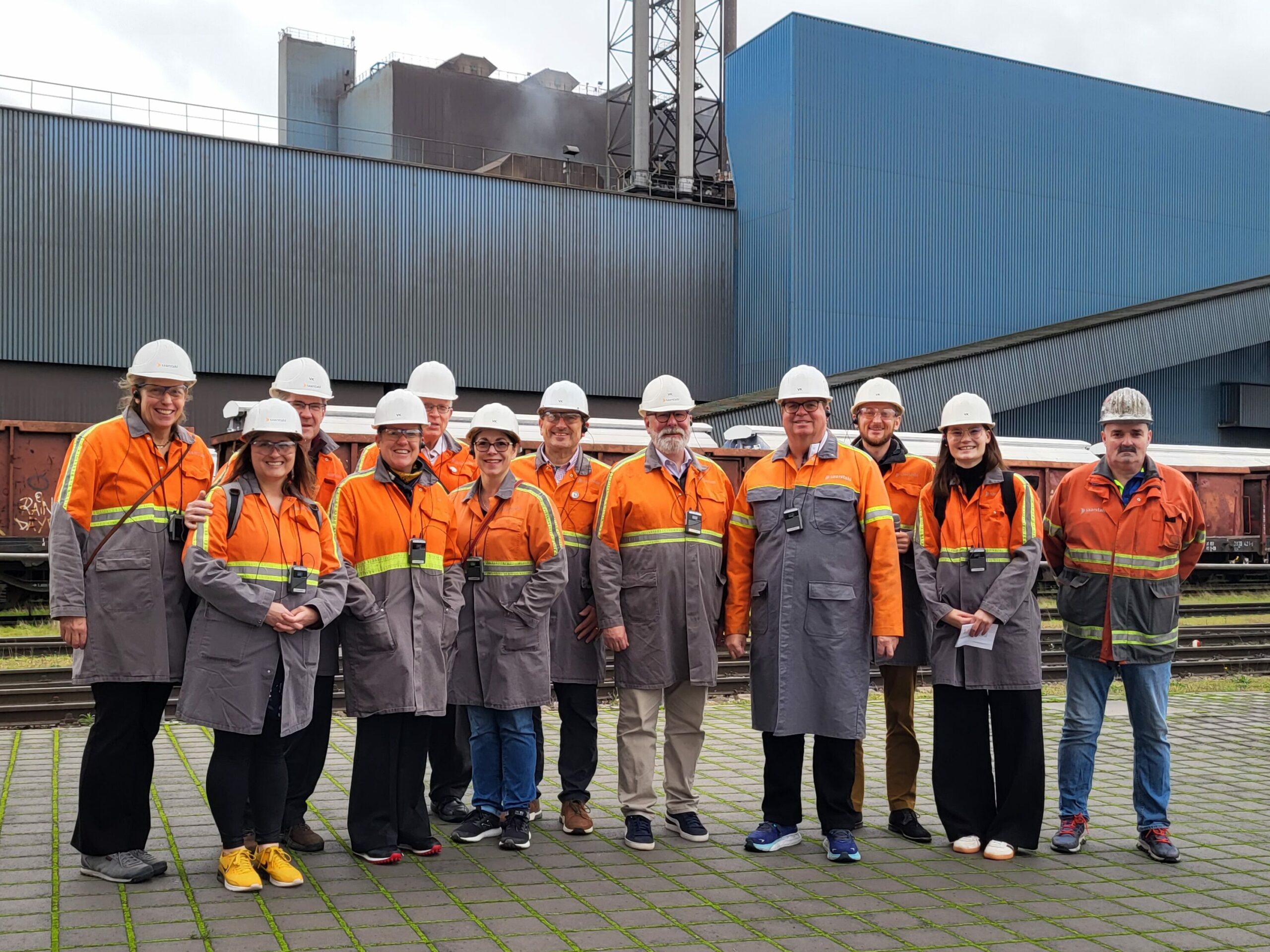
- Phil GiaQuinta, State Representative for Fort Wayne, Indiana, Leader of the Democrats in the Indiana House of Representatives
- Bridgette Gransden, County Administrator, Midland County, Michigan
- Melissa Hughes, Head of the Wisconsin Economic Development Agency
- Andy Levin, former Congressman for Michigan, accompanied by Mary Freeman, entrepreneur
- William Peduto, former Mayor of Pittsburgh, Pennsylvania
- Katie Rosenberg, Mayor of Wausau, Wisconsin
The delegation was further accompanied by John Austin, Director of the Michigan Economic Center and Senior Fellow at Brookings Insitute and Wolfgang Mössinger, former German Consul General in Chicago as well as our project team with Florian Ranft, Axel Ruppert and Sandra Rath.
Key Takeaways
- Local green transition projects must be rooted in the identity of the local population and workers, incorporate their needs and encourage their participation.
- Local and municipal governments must be equipped with the necessary governance tools and funds to impliment bottom-up policies that foster local identification and ownership, thereby countering right-wing populist narratives.
- To successfully communicate green transition measures, it is imperative to be sensitive towards “change fatigue” and past experiences of upheaval of the local population, especially in East Germany.
- To rebuild trust in democratic institutions and decision-making, governments must communicate green transition policies transparently and create spaces for deliberation and participation.
- Providing a local network to connect research and development (R&D) with businesses is crucial to fostering innovation and directly implementing green technology in the region.
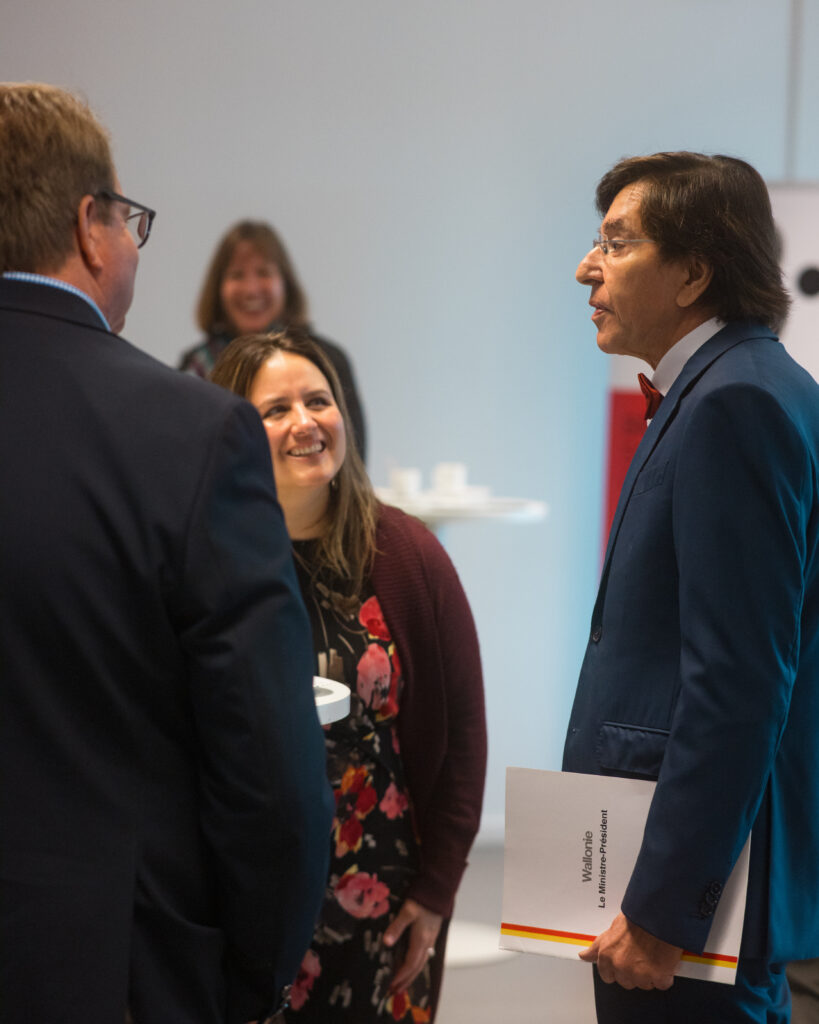
Sunday, 12th November 2023
The Wallonian city of Charleroi is located just an hour outside of Brussels, yet unlike the Belgian capital, the former industrial town grapples with the challenges of a declining population, dwindling job prospects and a dire life outlook. On their first day, our delegation had the chance to visit the town’s Biopark. They were greeted by Wallonian Minister President, Elio di Rupo, and Belgian State Secretary for Strategic Investments and Science with the Ministry for Economic and Labour, Thomas Dermine. Both stressed the importance of government action in encouraging scientific ventures to settle in the city and in bolstering green transition and industrial policy efforts. They underlined that support measures by governments should focus more on mid-sized cities and rural regions as bigger cities are attractive in their own right for companies as well as skilled workers.
Later on, the delegation had the opportunity to tour the facilities of Charleroi’s Biopark with CEO Dominique Demonté, a scientific hub that so far has attracted more than 100 companies and helped create 45 startups in the health care and science sector. Experience the visit as covered by Belgian TV.
In the afternoon, the delegation enjoyed a tour of St. Gilles, one of Brussels’ 19 municipalities and a former working class district, where city planning has been put to use to lead modernisation efforts towards better living standards. The highlight of the tour was a visit to the Aegidium, an impressive building hidden behind a regular facade, with a rich history of being repurposed to meet the district’s needs since the 1920s.
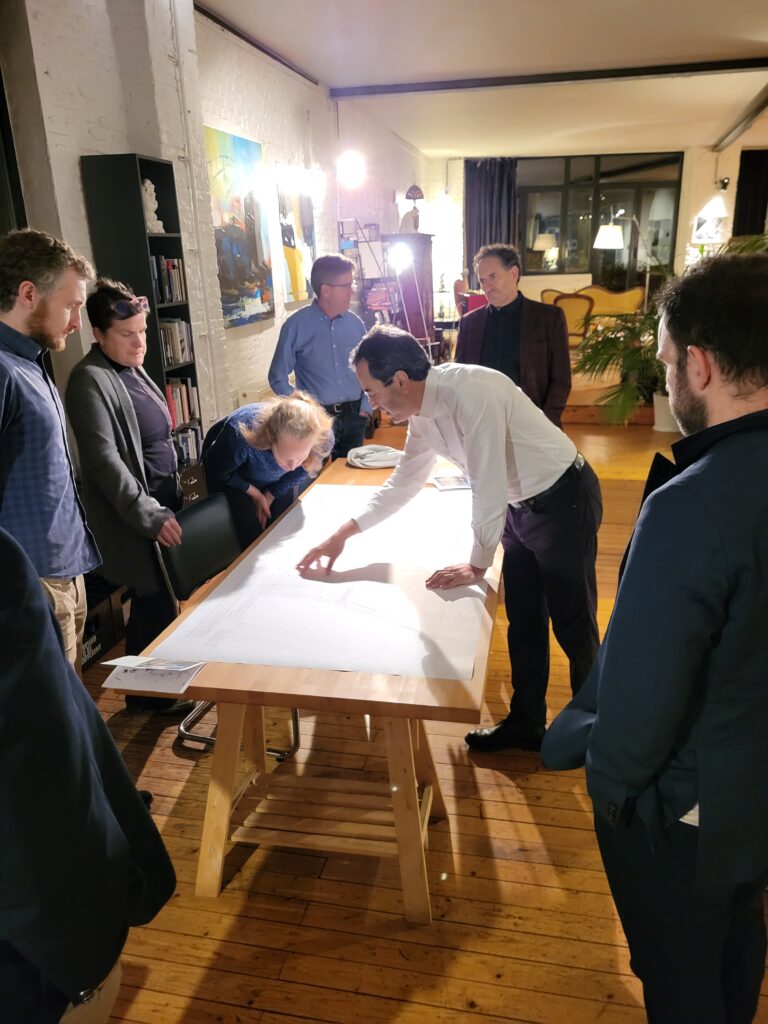
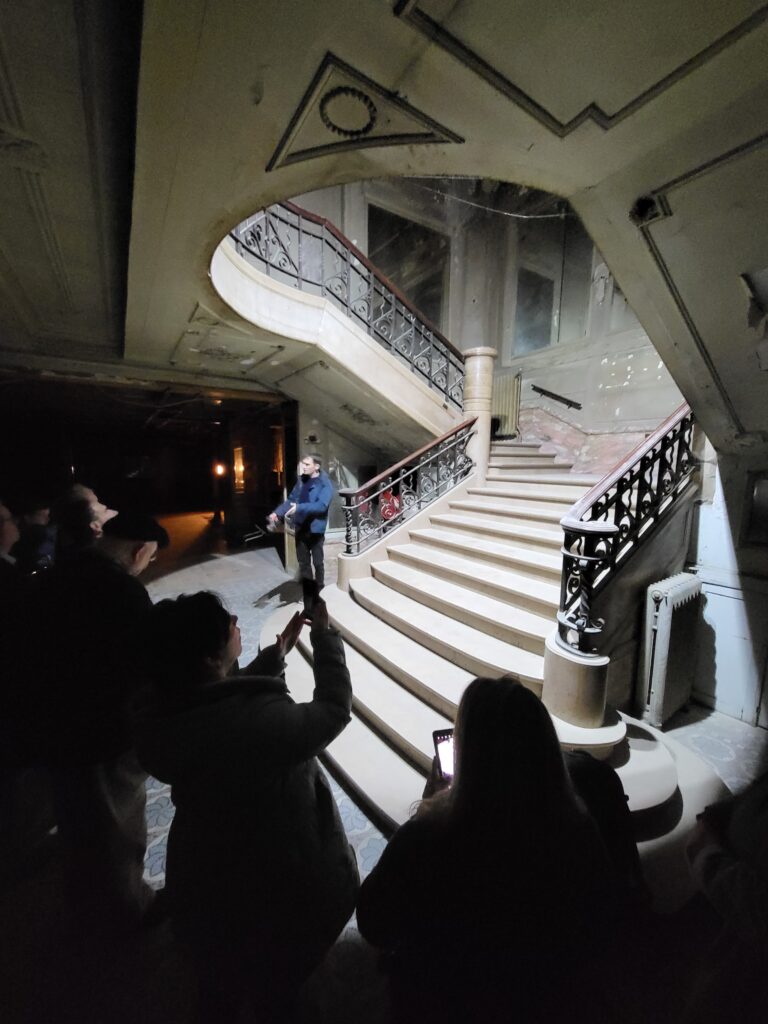
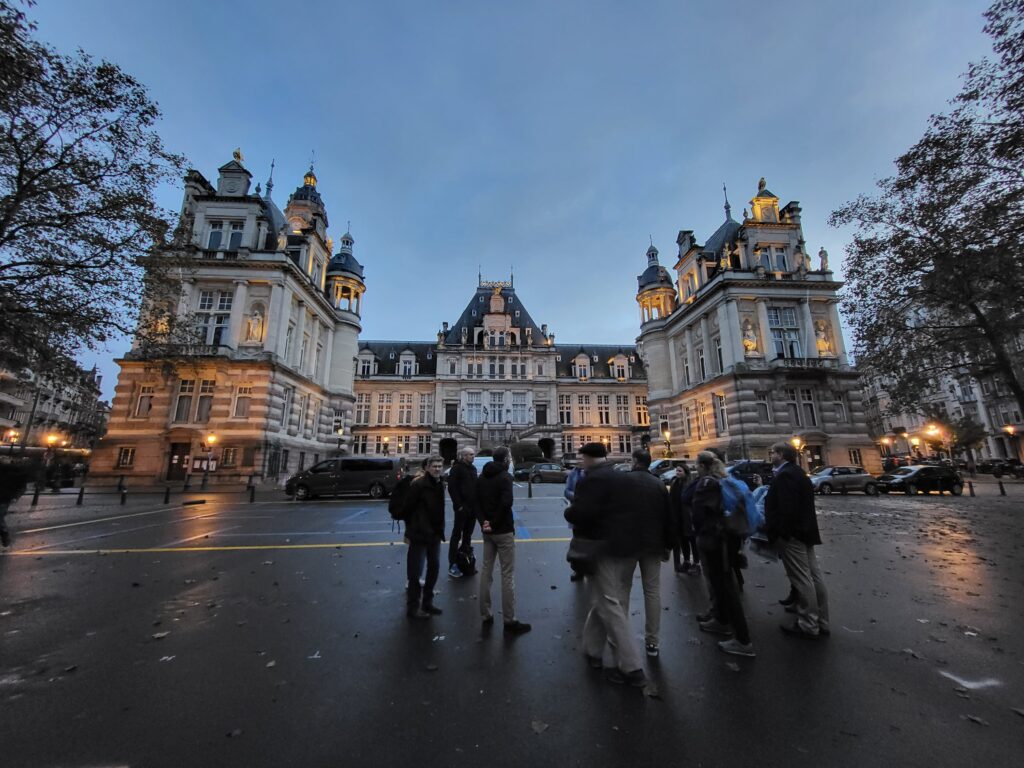
Monday, 13th November 2023
How does the European Commission plan on supporting industrial heartlands in light of the European Green Deal? On the second day in Brussels, our delegation attended and spoke at the Transatlantic Conference on the “Geographies of Discontent”, co-hosted by the European Commission DG Regio’s Peter Berkowitz. The conference highlighted the importance of place-based policies that equip local and municipal leaders with capacities to deliver a green transition and build modern infrastructure. These processes need to create and uphold local identity, ownership and participation to counter right-wing populist narratives of top-down green transition policies. In her conference keynote, our Sounding Board member Cathryn Clüver Ashbrook further emphasized, how central subnational transatlantic cooperation is to better deliver for rural regions and in countering illiberal movements. After the conference, our delegation headed to Saarbrücken, Germany by train.
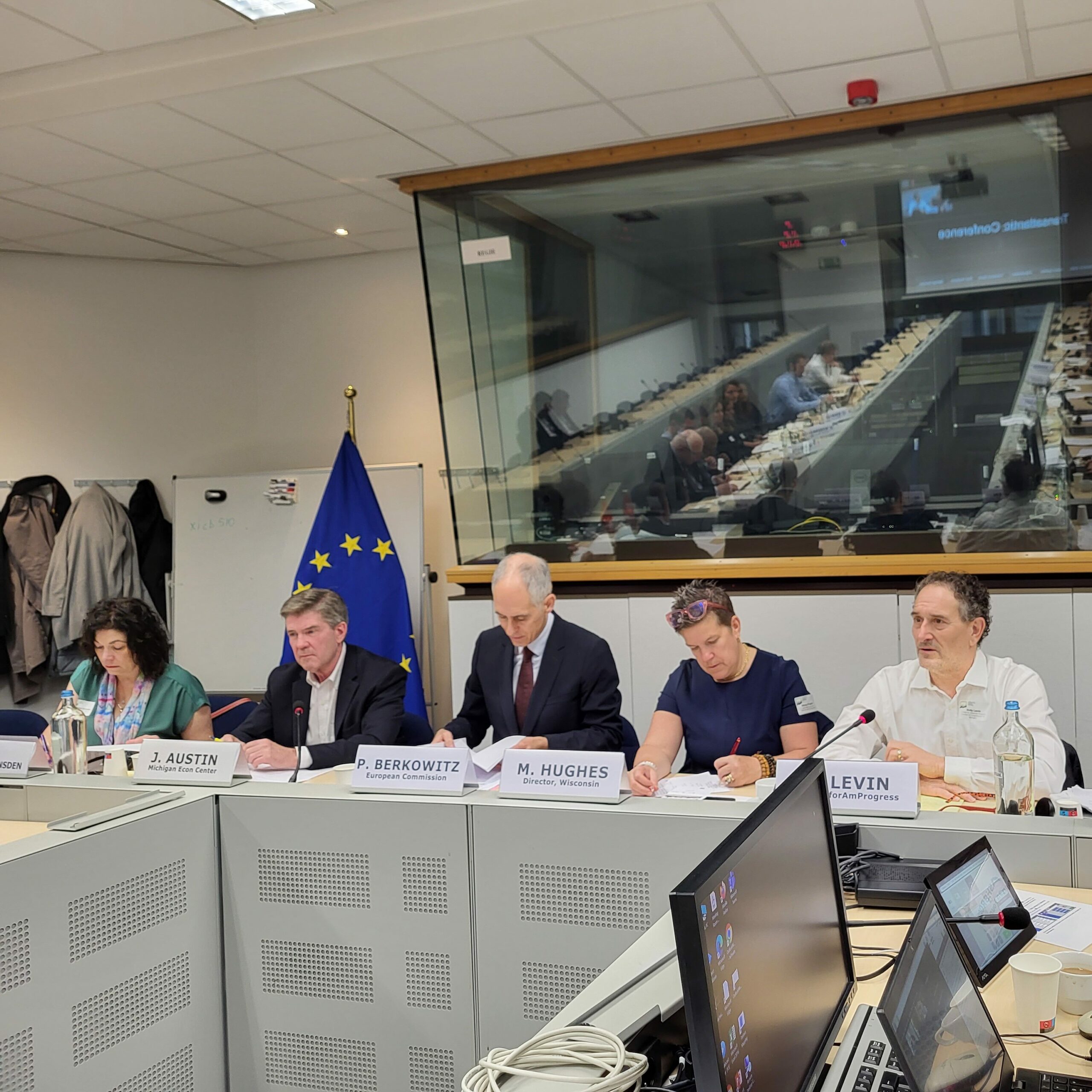
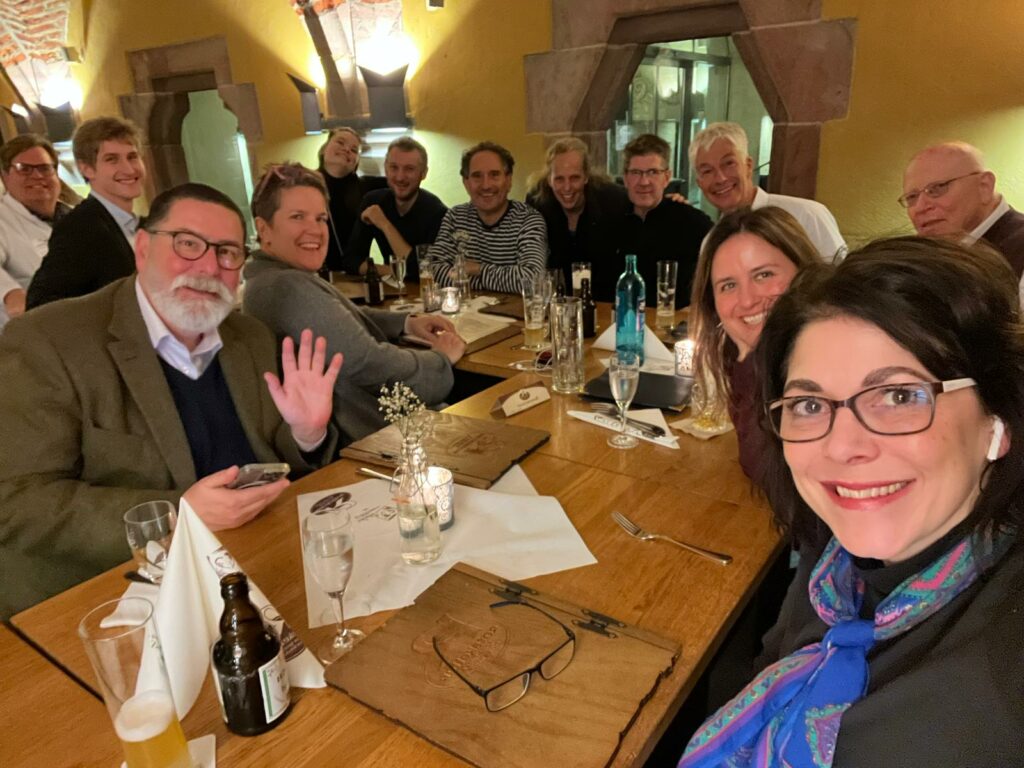
Tuesday, 14th November 2023
How do industrial workers in affected regions in Germany look at the green transition challenges ahead? The delegation’s first day in Germany started with a visit to the Saarstahl steel plant in Völklingen. In a meeting with the workers’ council, the delegation learned about the company’s plans to produce green steel with hydrogen energy, the biggest steel transformation project in Europe to secure jobs in the region. The remarkable determination and unity of the workforce in fighting for a federal grant to produce green steel was impressive. At the time, the grant was still pending EU permission, as of December 2023, the EU has allowed the German government to issue it. The visit ended with a private tour of the steel plant. Read in his article for the Washington Quarterly on how former Pittsburgh Mayor Bill Peduto reflects his visit and what he hopes to take away for the steel industry around Pittsburgh.
In the final meeting of the day, the delegation learned from Saarland’s Minister of Finance, Jakob von Weizsäcker, about Saarland’s Transformation Fund, a fiscal instrument to allocate government funds to local green transition initiatives, underlining the all-of-government approach to the green transition in the Saarland. The meetings of the day emphasized the power of a united approach to green industrial policy that encompasses workers, company management and the political level.
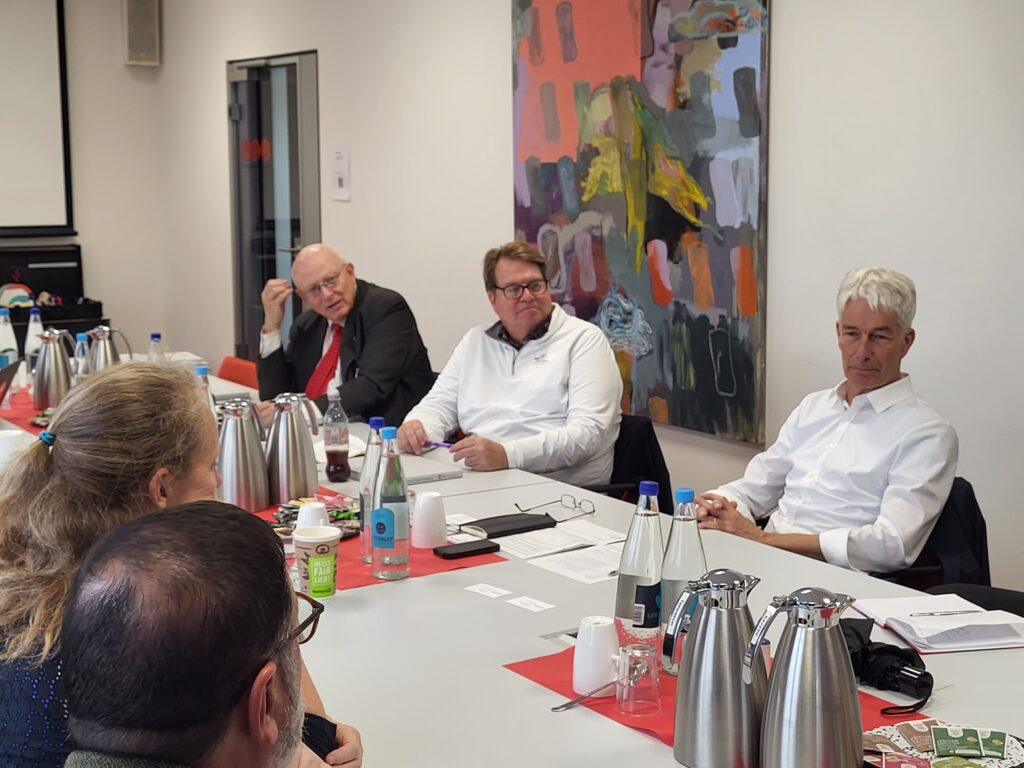
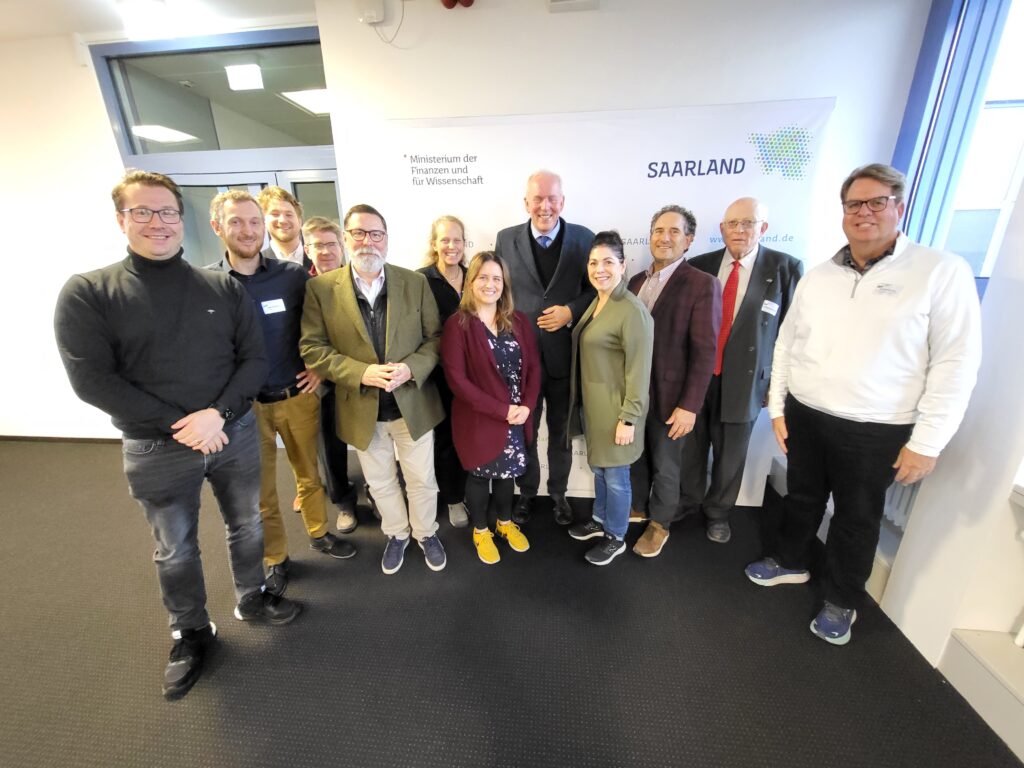
Wednesday, 15th November 2023
In protecting liberal democracy, civil society plays a crucial role in providing spaces for exchange and discussions. Before embarking on a long train travel to Leipzig, the delegation visited the Foundation Democracy Saarland, learning about its projects, events and educational field trips to foster civic education for adults with the goal to support liberal democracy in the region.
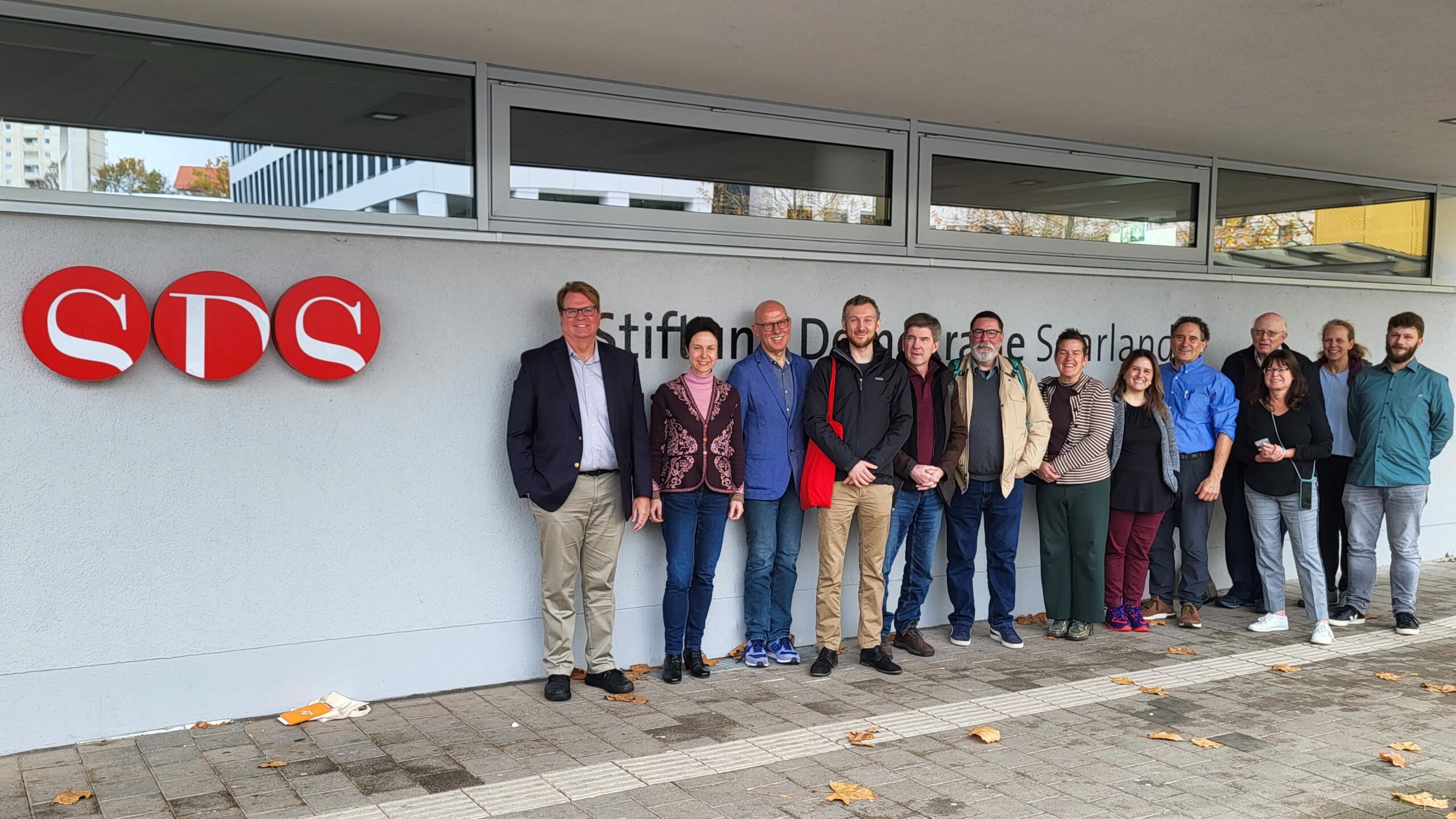
Thursday, 16th November 2023
The next day included a first for most of our delegation members: visiting East Germay. In Leipzig, our delegation was welcomed at the German-American Institute Saxony, an institution that fosters transatlantic relations in East Germany. After learning about the Institute’s work, the group was introduced to the specificty of East German in the green transition and reasons for the rise of right-wing populism in large parts of East Germany. East Germany underwent an astounding transformation after the German reunification with disappearance of manufacturing jobs and perspectives for skilled workers which ultimately caused a declining and aging population.
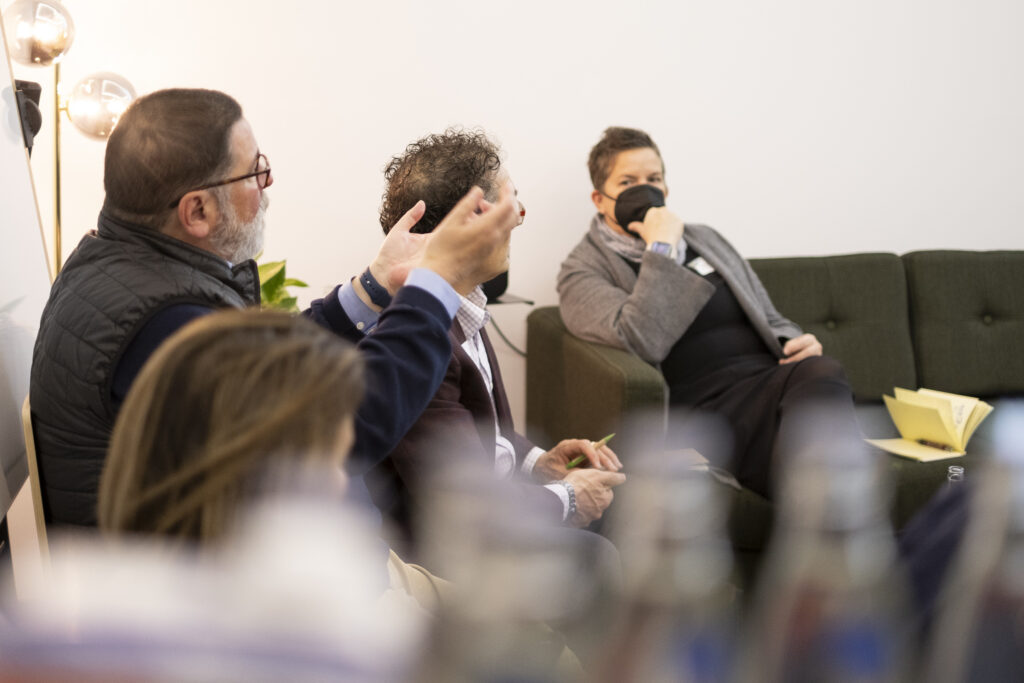
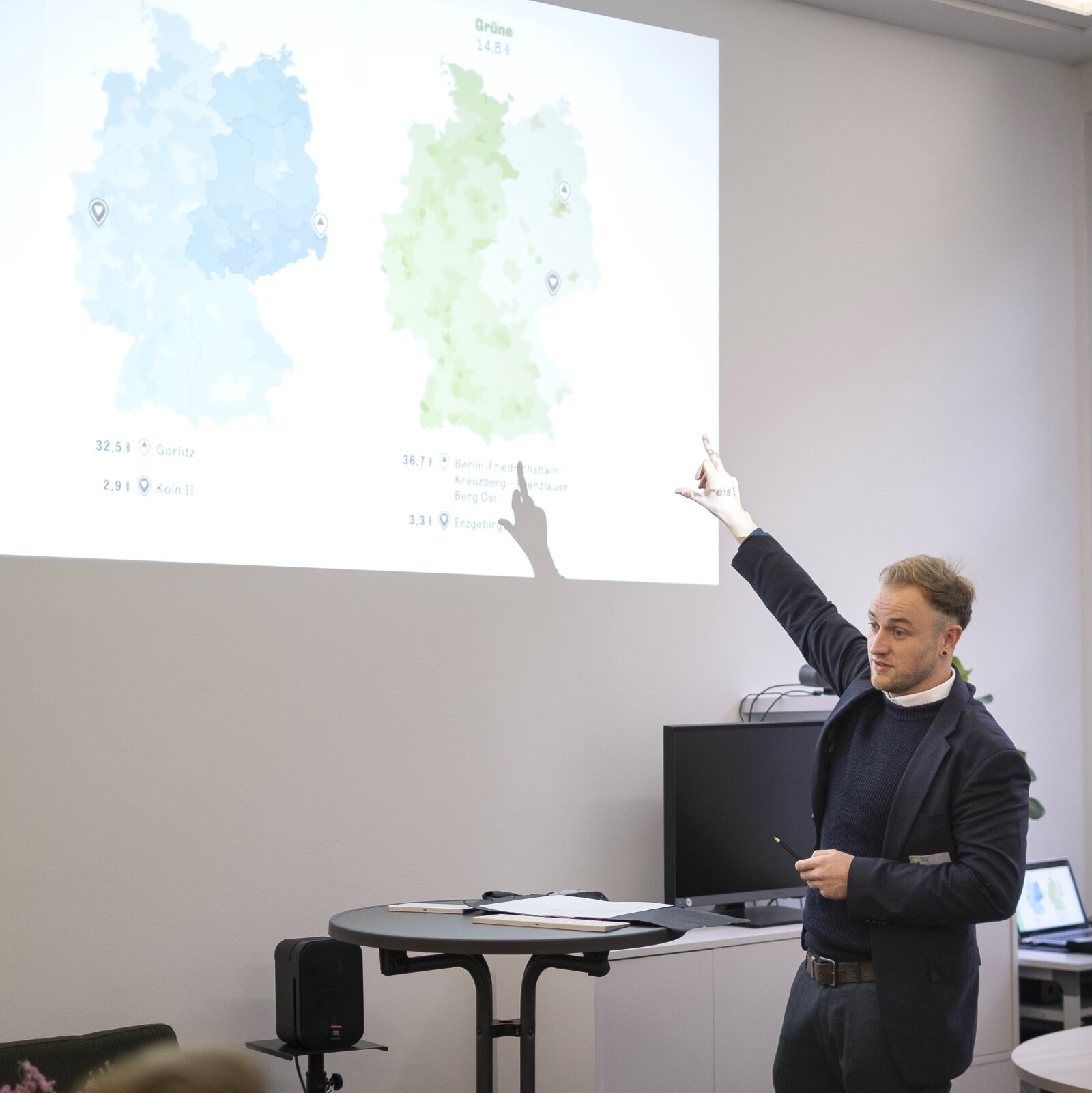
(Fotos: Corinna Mehl)
In a conversation with Sebastian Striegel, Member of Parliament in Saxony-Anhalt for Alliance 90/ The Greens, the group learned about concrete examples of what the German government’s decision to phase out lignite coal production by 2038 means for the region around Schkopau. Striegel also spoke about how former chemical production sites in Leuna are being replaced with green technology and yet, the local population feels left out of the decision making process in the green transition of the region. Although the region grapples with a “change fatigue” as a result of the reunification years, the government is actively trying to encourage citizen participation.

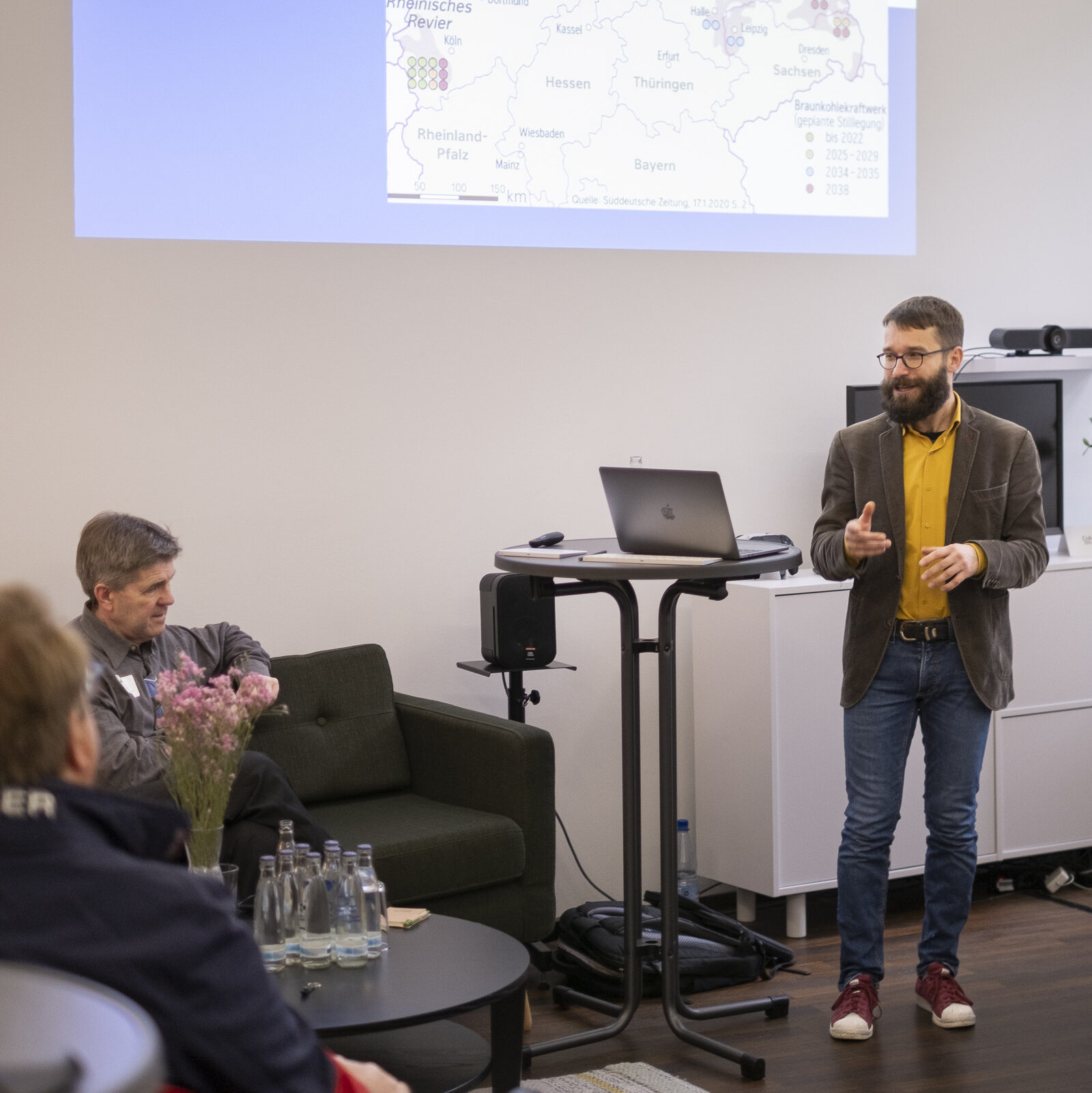
(Fotos: Corinna Mehl)
In a last meeting of the day, our delegation met with Thomas Kralinksi, State Secretary in the Saxon Ministry of Economy, Labour and Transport and Sounding Board member of the Transatlantic Dialogue on the Industrial Heartlands Project. During the conversation, Kralinski spoke about the government’s strategy to attract chips production through the “Silicon Saxony” initiative, thus fosterting the creation of green jobs, and the “Future Sax” platform which aims to connect universities with small and medium sized enterprises around the state. Regarding the rise of right-wing populism in the state, Kralinksi reiterated the fear of change in East Germans rooted in the reunification experience and currently driven by the aftermath of the Covid pandemic, inflation, migration and the war in Ukraine.
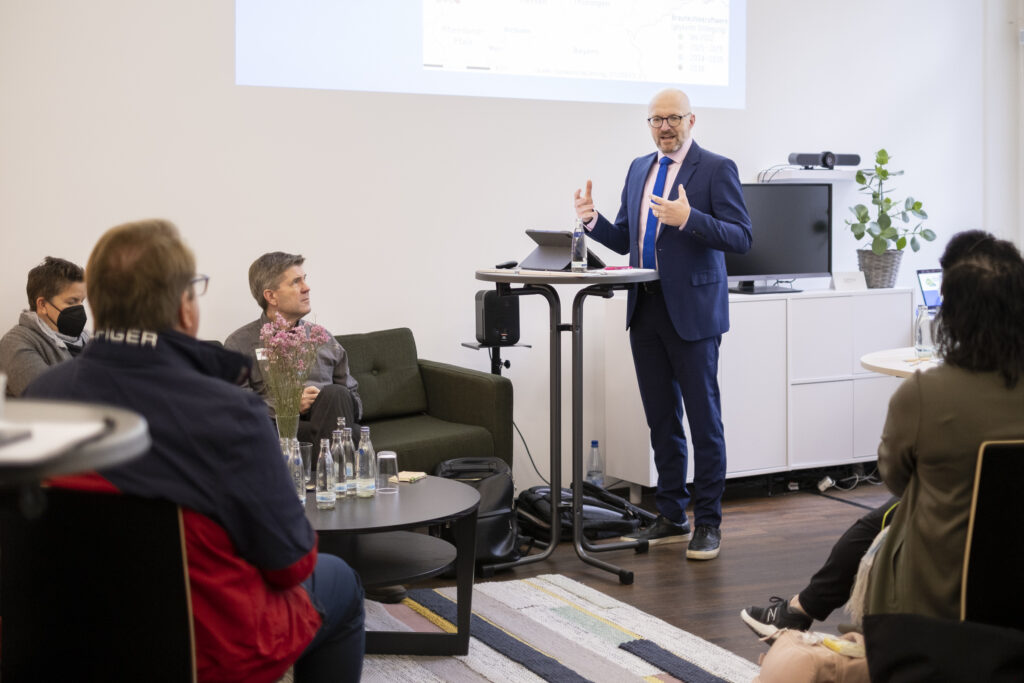
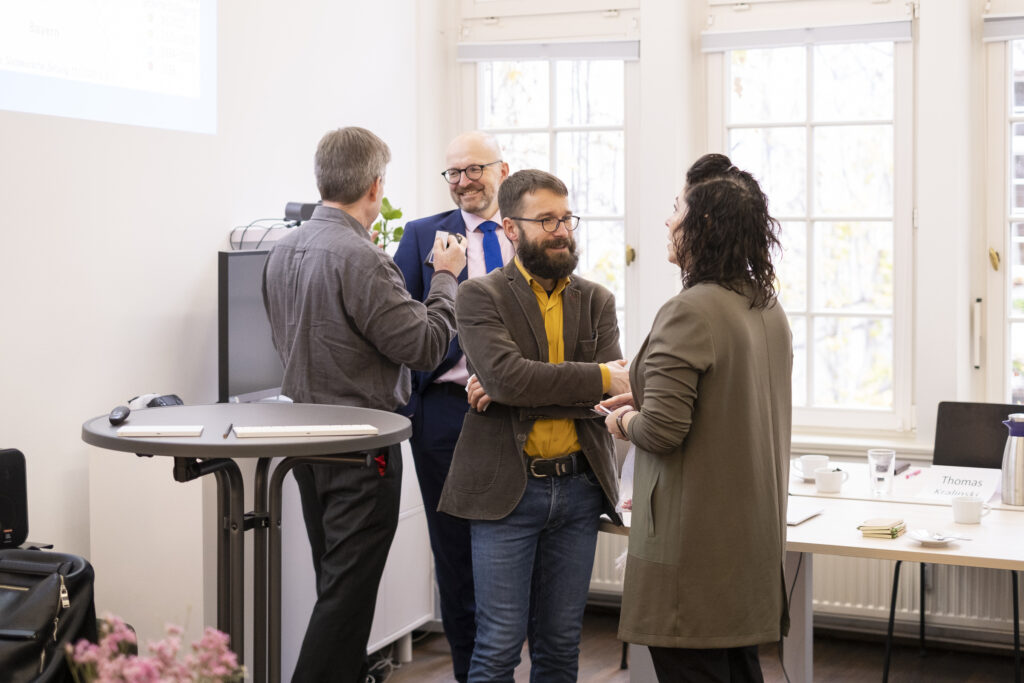
(Fotos: Corinna Mehl)
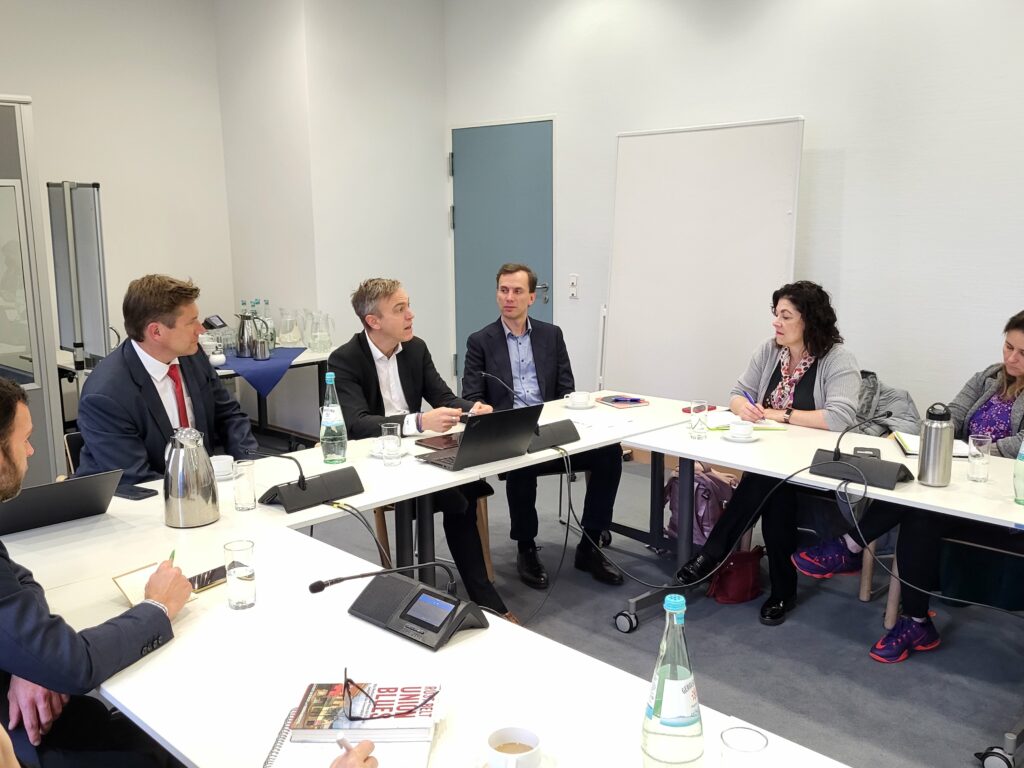
Friday, 17th November 2023
The final day of the study tour began with a visit to the Federal Ministry of Economic Affairs and Climate Action in Berlin. During a meeting with Philipp Steinberg, Director-General for Economic Stabilization and Energy Security, the delegation heard about how the government allocates funding to support the economic transition away from coal production and towards carbon neutrality by 2045.
In an second meeting at the Federal Ministry for Labour and Social Affairs, the group engaged in discussion with Ana Dujic, Head of the Think Tank “Digital Labour Society” about the challenges and opportunities of the digitalization of the labout market through AI. The most pressing issues discussed were AI regulation for the labor market, an aging workforce as well as the skills shortage in Germany.
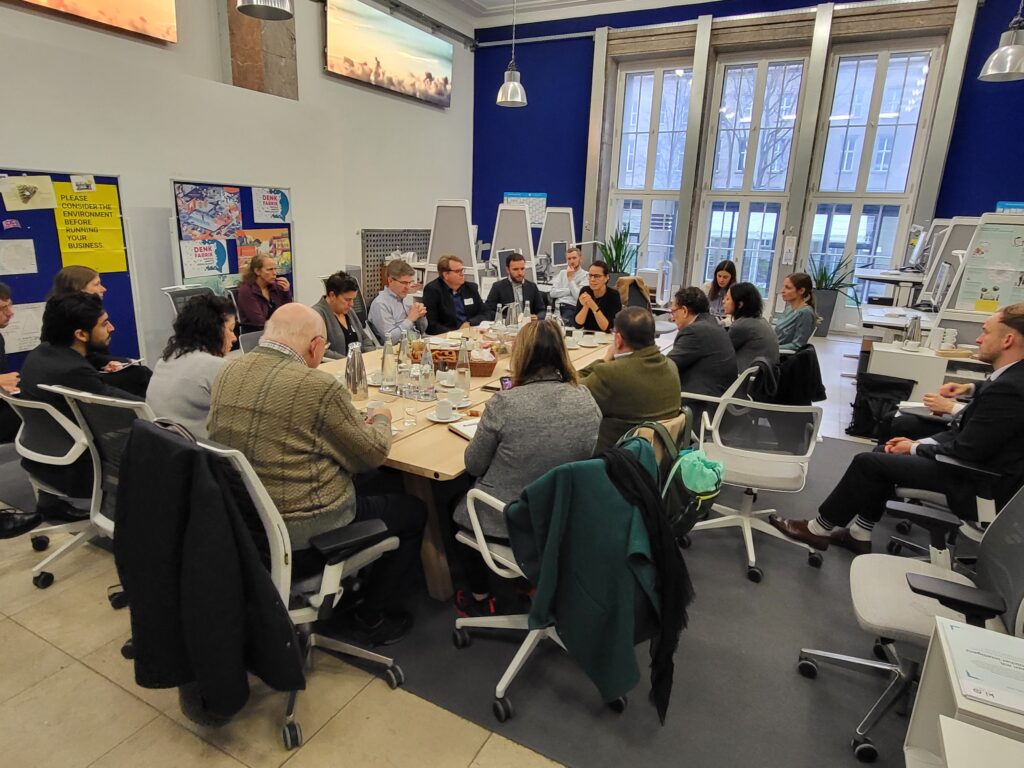
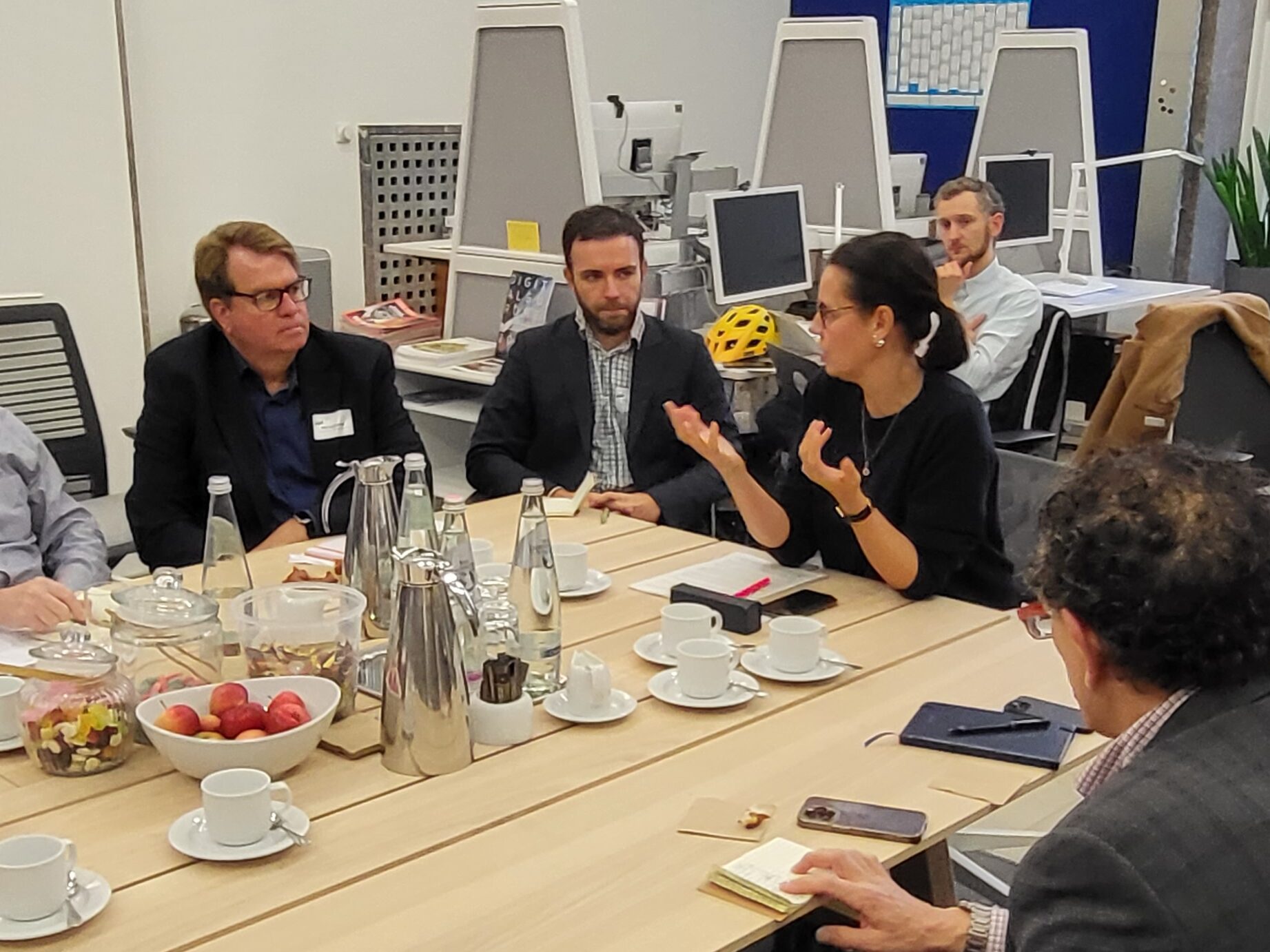
In the afternoon, the delegation attended the official launch of the Transatlantic Dialogue on the Industrial Heartlands Project at Das Progressive Zentrum’s Innocracy Conference. They discussed the Project Fellows’ impulse papers and gave feedback and advice on what topics to focus on throughout the course of the fellowship. The day ended with an informal meeting with representatives of the Atlantikbrücke, rounding up a week of week of transatlantic peer learning on industrial heartland regions.
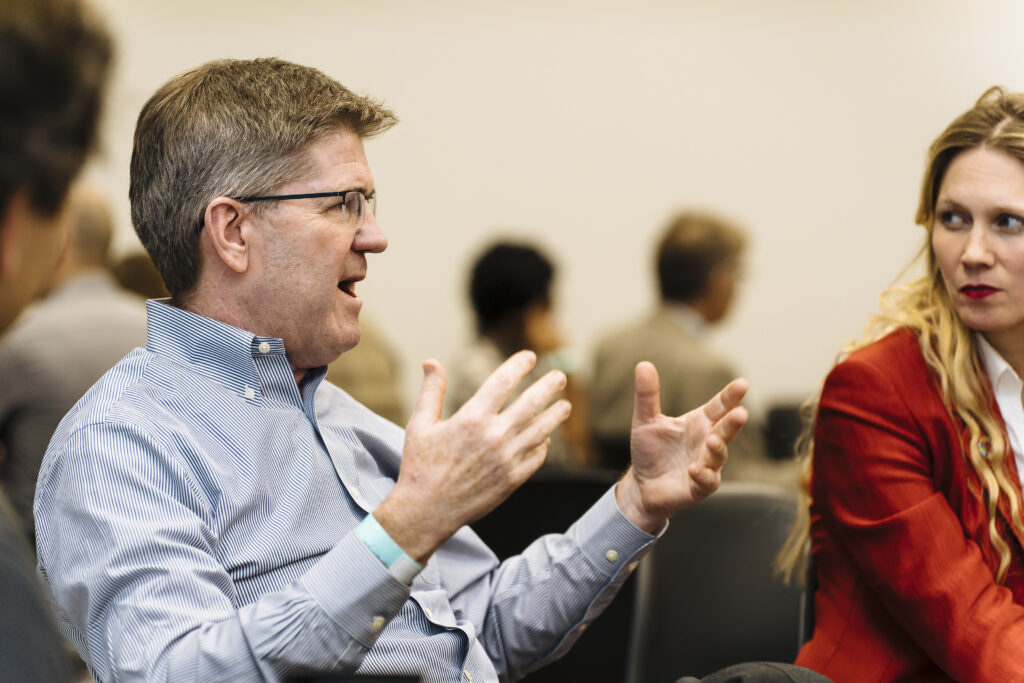
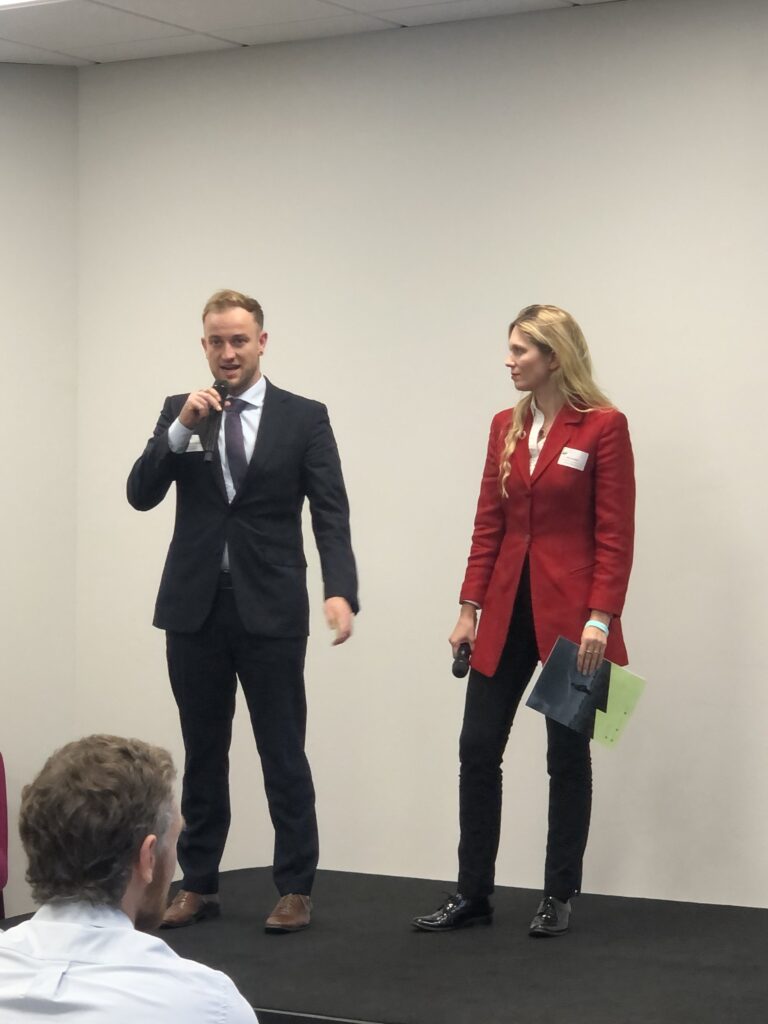
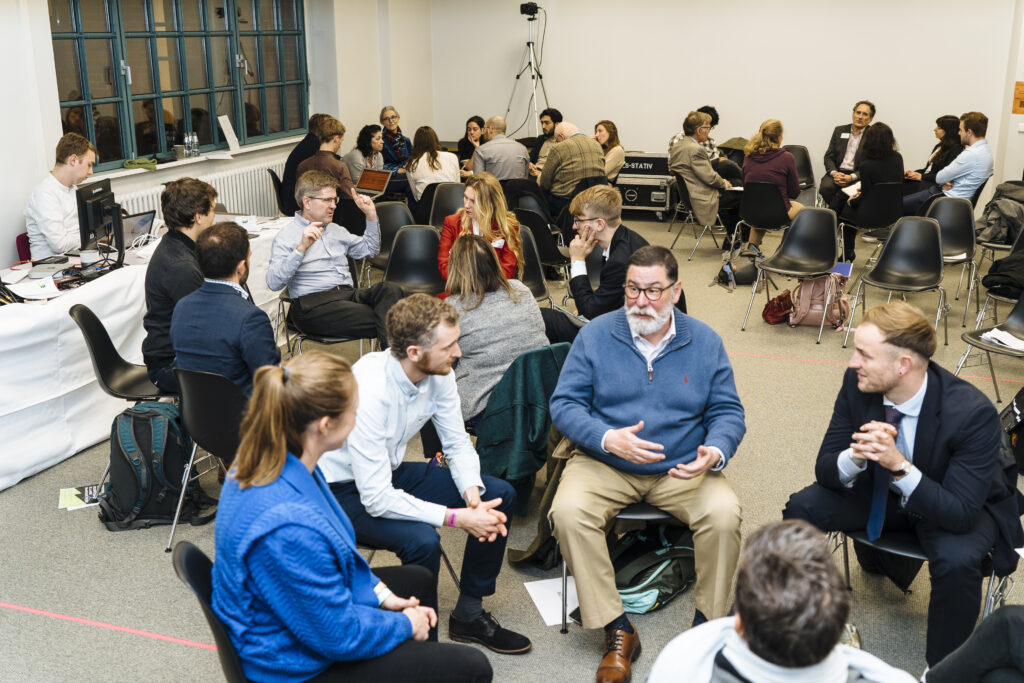
(Fotos: Fabian Melber)
